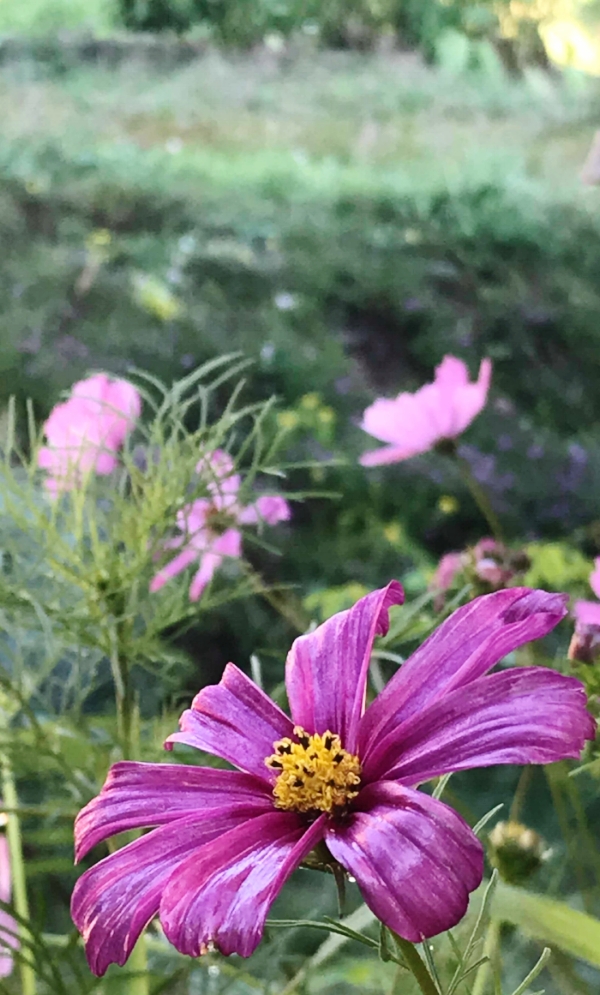While these herbs are not without risks and I carefully note warnings or potential problems in my posts, they are herbs that have been used medicinally for thousands of years and have been proved in the ultimate test of time across many different cultures. They are also herbs that I have tried myself or seen in action.
While I encourage all herbalists, whether professionals or home herbalists, to keep up on the ongoing research on herbal medicinals, there is nothing like personal experience to give a deep understanding of what an herb can do. Before I used large doses of ginger to protect myself from a known reaction to pharmaceutical toxins, I had read the optimistic-sounding research but I had little understanding of how it would actually work.
I have four herbs to list that I use for detox and protection from toxins. These are all considered low-risk herbs which are consumed by many people as foods. Certainly, each individual is different and you should exercise caution with any herbal medicine and consult with your doctor, particularly if you take any regular medications. However, these herbs are among those that are usually safe and protective in action. Unlike many herbs and other detox treatments, these four can often be consumed by pregnant women and those with fragile health.
Ginger
Ginger acts in the body as a gentle stimulant and protector. It protects the integrity of cells and helps to flush out toxins, particularly many of those connected with pharmaceuticals.
Several studies have shown that women who underwent chemotherapy for the treatment of breast cancer used ginger aromatherapy effectively to curb resulting nausea. In other chemotherapy studies ginger extracts have been found to significantly reduce post-chemo nausea. Many herbalists say holding a piece of ginger in your mouth while undergoing chemotherapy markedly reduces nausea.
Another study has found similarly beneficial effects for patients experiencing nausea after surgery involving anesthesia. Radiation therapies also entail similar cell damage and exposure to toxins. Several studies have shown treatment with ginger extracts before exposure to radiation helped reduce the risks to animals (including severe radiation sickness and death) of the exposure.
My own experience bears out these results. And even more exciting to me is the fact that I was able to achieve these results without having to depend on a processed ginger extract or essential oil. I was able to eat pleasant ginger curry and drink three or four cups of strong ginger tea per day (brewed by grating fresh ginger into hot water and letting it steep without boiling). The use of ginger as a simple was sufficient to significantly improve my recovery after my second surgery.
Ginger has a vast array of other medicinal uses beyond detoxification and protection. Further studies and recipes for everything from coughs and migraines to cancer and Alzheimer's can be found in my home medicine post on ginger here.
Red Clover
Red clover is a humble, almost ubiquitous plant with some surprising properties. Some studies claim it fights breast. prostate and skin cancer. Other research shows its effectiveness in mitigating the side effects of chemotherapy as well as toxic inflammation associated with cardiovascular disease. It has also been used for women's health during menopause.
My only personal experience with red clover is in preventative skin care. I am at an age where it is a good idea to monitor one’s skin for strange new moles or bumps that grow instead of going away. Some years ago, I had such a mystery bump on my leg and I was considering going in for testing.
But then I read about the efficacy of fresh red clover in preventing skin cancer. I thought I’d just try it out while I waited for my dermatology appointment. But when I mashed up a fresh red clover bloom and stuck it on the bump with a band aid, the effect was dramatic. This bump which had grown and itched and bugged me for months despite all the other herbal sales I tried, subsided and nearly disappeared within three days. And it stayed gone. I occasionally put another red clover bloom on it for prevention, but it has never troubled me since, though it has returned to the normal-sized mole it used to be.
I can’t generalize from such a one-off personal experience. I definitely suggest you take any suspicious moles and bumps to be tested. Skin cancer is nothing to play around with. The red clover treatment also works far better in the summer when red clover is fresh and in bloom, but it’s something to keep in mind.
Nettle
Nettles are often considered a noxious weed and a mere annoyance. However, they have some powerful beneficial effects and are delicious steamed and seasoned with butter and lemon.






























